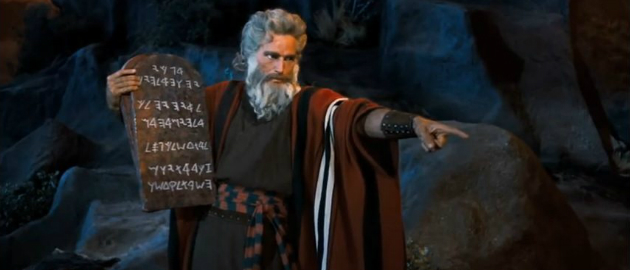Moses was the loving leader and national father par excellence. Why the total change in character?
By: Rabbi Ari Enkin, Rabbinic Director, United with Israel
This week’s Torah portion is “Ki Tavo” (Deuteronomy 26:1-29:8) and in it we read the infamous section of the curses. These curses are the horrific calamities that are said to come upon the Jewish people for not following the commandments of the Torah.
In most congregations, this section is read in a whisper so as not to “arouse” any bad luck. On the other hand, it is taught that all of these curses have, unfortunately, been fulfilled over the years (crusades, inquisitions, pogroms, holocaust, etc. etc.), and hence, there is no reason to read them quietly; we paid the price, and the future can only get better – and it is!
This week’s reading is not the only section of the Torah that lists curses for not observing the Torah.
There is another similar section in Leviticus. The difference between the two is that the curses in Leviticus are the words of God, while the curses of Deuteronomy are the words of Moses – although God endorsed Moses’ initiative, which is why they were included in the Torah.
The question is asked: Moses was the loving leader and national father par excellence. He saved the Jewish people so many times from annihilation when God was ready to destroy them for their sins.
So how could it be that Moses is the one to compose a second round of curses? Is Moses starting to resent the nation in his old age? Why the total change in character?
One answer originates in the annual Torah reading schedule that was enacted by the prophet Ezra (circa 500 BCE). Ezra arranged the annual Torah reading cycle in such a way that we would always read this week’s Torah portion before Rosh Hashana. He did this to symbolize the hope that any talk of curses should be “out of the way” before Rosh Hashana comes along, so that we can go into the new year looking forward only to blessings.
Indeed, it would be strange to read the curses right after Rosh Hashana and Yom Kippur, when we had just spent so much time in the synagogue praying for blessings! We are taught that just reading the curses is considered somewhat to have experienced them, which would make us even more deserving of blessings on Rosh Hashana for the coming year.
Perhaps this is why Moses decided to make the uncharacteristic move of writing his own set of curses. By writing the curses, he was hoping to protect the Jewish people from unnecessary physical harm in the future. As mentioned, simply by reading them, it is as if we had already suffered.
May the coming new year bring only blessings!
For more insights by Rabbi Enkin on this week’s Torah portion, click on the links below.
https://unitedwithisrael.org/living-torah-lack-of-gratitude-equals-denial-of-god/
https://unitedwithisrael.org/living-torah-the-chosen-people-2/
https://unitedwithisrael.org/living-torah-does-god-appreciate-the-effort/
https://unitedwithisrael.org/the-first-fruits-appreciating-the-gifts-of-the-poor/
https://unitedwithisrael.org/living-torah-being-happy/
https://unitedwithisrael.org/living-torah-lack-of-gratitude-equals-denial-of-god/
Do You Love Israel? Make a Donation - Show Your Support!
Donate to vital charities that help protect Israeli citizens and inspire millions around the world to support Israel too!
Now more than ever, Israel needs your help to fight and win the war -- including on the battlefield of public opinion.
Antisemitism, anti-Israel bias and boycotts are out of control. Israel's enemies are inciting terror and violence against innocent Israelis and Jews around the world. Help us fight back!

